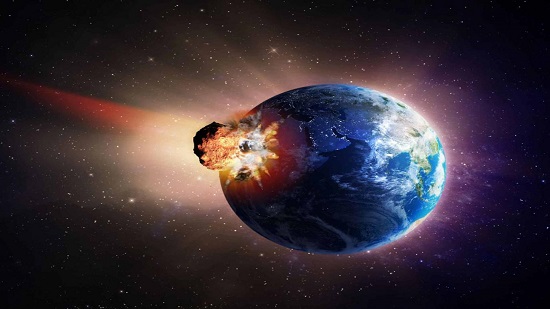Nearly every species of mammal was eradicated by the prehistoric asteroid which wiped out the dinosaurs, research suggests.
Around 93% of mammal species were made extinct by the strike, which took place in the Cretaceous period, more than 66 million years ago.
Examination of fossil records by scientists from the University of Bath determined that the asteroid's impact had been much more severe than previously thought.
Past estimates have been much lower because some of the rarer species that were killed left a smaller fossil record, researchers said.
The University of Bath's Dr Nick Longrich said: "The species that are most vulnerable to extinction are the rare ones, and because they are rare, their fossils are less likely to be found.
"The species that tend to survive are more common, so we tend to find them.
"The fossil record is biased in favour of the species that survived. As bad as things looked before, including more data shows the extinction was more severe than previously believed."
It was also found the asteroid's catastrophic effect for life on Earth was mitigated by species recovering rapidly.
Within 300,000 years, the number of species on the planet was double the amount that had existed before the mass extinction.
Due to the lack of sustenance resulting from the widespread destruction of vegetation and animals, it is thought that the largest living animal during the period would have been about the size of a cat.
Dr Longrich added: "Because mammals did so well after the extinction, we have tended to assume that it didn't hit them as hard.
"However, our analysis shows that the mammals were hit harder than most groups of animals, such as lizards, turtles, crocodilians, but they proved to be far more adaptable in the aftermath.
"It wasn't low extinction rates, but the ability to recover and adapt in the aftermath that led the mammals to take over."
Researchers analysed all known mammal species in North America from the end of the Cretaceous period to draw their conclusions.
The findings were published in the Journal of Evolutionary Biology.




